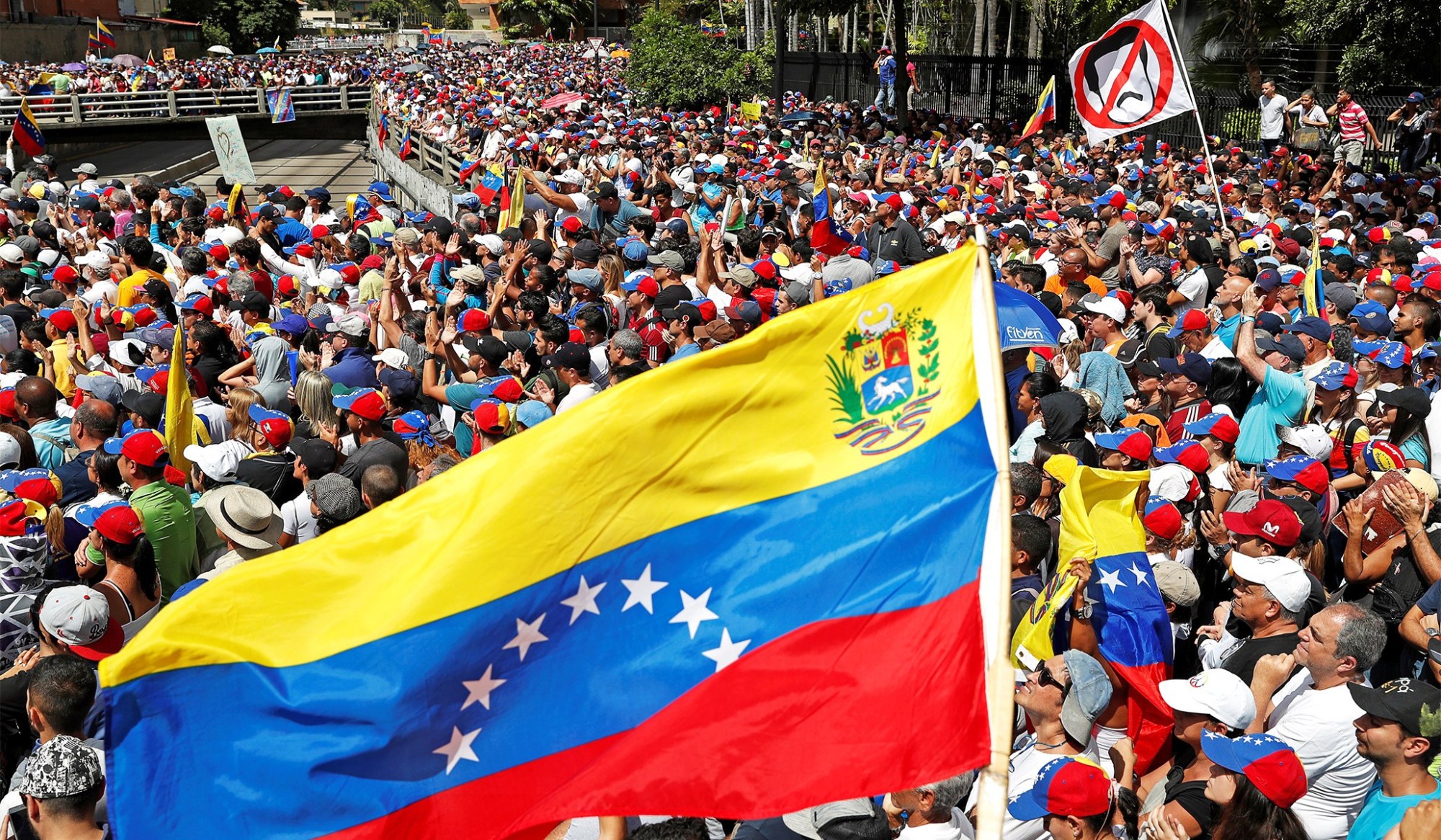This Captive Nations Week, America Must Stand with Those Struggling for Freedom around the World
Sixty years after Congress created it, the week’s aims remain as vital as ever.

Welcome to Captive Nations Week. Never heard of it? There are now likely multiple generations of American citizens who haven’t — and that’s not a good thing for the future of freedom.
This week was once a fixture of American public life, especially in urban areas with refugee populations. It was created through an act of Congress signed by President Eisenhower in 1959, decreeing that the third week of July would be a time for Americans to show solidarity with all the nations dominated by Communism. In the words of the authorizing legislation, the people of the United States share with the people of these countries “their aspirations for the recovery of their freedom and independence.”
The original law listed by name 22 Captive Nations, most of which had substantial communities in the United States. After the law’s passage, these communities began to hold massive parades and rallies during the annual week, while establishing local committees to coordinate year-long activities. Armenians in Los Angeles, Polish in Chicago, Ukrainians in New York, and many others joined with American citizens to highlight their unique cultures — often suppressed by Soviet or Chinese tyrants — while demanding the release of their countries from Communist captivity.
American politicians also joined the festivities. Mayors and governors participated in local parades and showed their support for their constituents. Presidents, obliged to issue an annual proclamation under the 1959 law, did their part too — especially Ronald Reagan, who touted the week’s importance in public speeches. Looking back, Captive Nations Week kept the reality of Communist tyranny at the forefront of the national consciousness, while further binding us as Americans to all those who yearn for freedom. It played a significant, if largely unknown, role in the triumph of liberty over tyranny in the Cold War.
Since 1989, Captive Nations Week has faded from view. But while the Berlin Wall fell, Communism didn’t. There are still many captive nations across the world, including some that were on the original list. And while the number of Communist-dominated nations shrank in the 1990s, it’s now growing again.
The 1959 list included countries such as mainland China, Tibet, North Korea, and Vietnam that remain under Communist sway today, as do several countries, such as Laos and Cuba, subsequently added to the list by the congressionally authorized (and now defunct) National Captive Nations Committee. The original law also noted geographic areas, such as the part of Turkestan now called Xinjiang by the Communist People’s Republic of China, which still controls and brutalizes it.
The Victims of Communism Memorial Foundation, of which I serve as the executive director, continues to raise awareness about the plight of these countries. Three years ago, we also recognized three new Captive Nations.
The first is Hong Kong. For more than a decade, Communist China has rigged the city’s elections, kidnapped dissidents, dictated school curricula, and engaged in other nefarious activities to undermine the city’s autonomy. As leaders of Hong Kong’s protest movement have told us, China’s control over the city’s daily life is deeper than most people know, despite the recent high-profile success of protests against Beijing-backed legislation that would’ve further eroded its autonomy.
The second is Venezuela, which is captive to Communist Cuba. Cuba’s military and intelligence services help keep Nicolas Maduro in power as the rest of the country descends deeper into poverty, blackouts, hunger, and desperation. For Cuba, the Venezuelan people’s suffering is acceptable, so long as the Cuban regime gets to buy about 100,000 barrels of cheap oil a day.
The third comprises the parts of Ukraine, including Crimea, which since 2014 have been illegally occupied by Russia. While Russia is no longer a Communist state, its actions in Crimea are strongly reminiscent of the Soviet Union’s foreign aggression. Ukrainian leaders have told us that they see Russia’s actions as an extension of President Putin’s Cold War logic, and we agree.
This year, we are recognizing another Captive Nation: Nicaragua. Like Venezuela, it is increasingly a satellite state of Cuba. In our conversations with members of the Nicaraguan military, they told us that Cuban and Venezuelan experts trained the paramilitary forces behind last year’s brutal crackdown on nationwide peaceful protests. Former inmates also report hearing Cuban accents in Nicaragua’s prisons.
Every Captive Nation, new or old, deserves the same attention that Captive Nations received in the second half of the 20th Century. To revive public knowledge of this week, our organization will host a Captive Nations Coalition Summit, working with exiles and local ethnic communities. But to truly bring the issue back into the national spotlight, government action is needed.
In decades past, Members of Congress introduced a slew of resolutions, gave countless speeches, and participated in nationwide events surrounding Captive Nations Week. They should do so again. Additionally, it has been many years since a president issued a substantial proclamation marking the week, and President Trump should revive that practice. His proclamation could focus on Venezuela, which is close to escaping Cuban domination and regaining its freedom, or on China and the many peoples and places it dominates.
Sixty years after its establishment, Captive Nations Week offers an important moment to focus on the continued global struggle for freedom. We can show the world that America proudly stands with those who yearn to be free against their oppressors. Just as important, we can awaken new generations of American citizens to the necessity of defending freedom, at home and abroad.
Marion Smith is the executive director of the Victims of Communism Memorial Foundation, an educational and human-rights non-profit authorized by a unanimous act of Congress. @smithmarion

